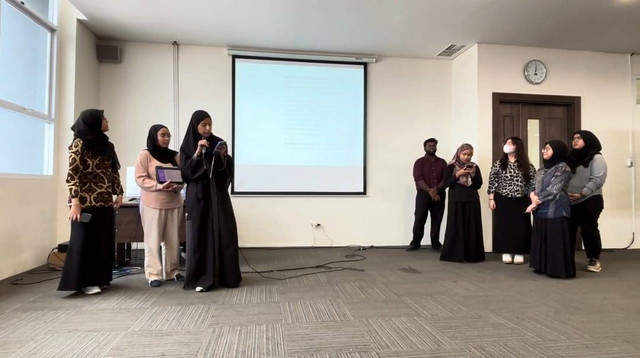Tentang KamiPedoman Media SiberKetentuan & Kebijakan PrivasiPanduan KomunitasPeringkat PenulisCara Menulis di kumparanInformasi Kerja SamaBantuanIklanKarir
2025 © PT Dynamo Media Network
Version 1.102.2
Konten dari Pengguna
Artificial Intelligence in Healthcare Industry in Indonesia
1 Januari 2025 20:19 WIB
·
waktu baca 3 menitTulisan dari Qistina Nadhirah Masri tidak mewakili pandangan dari redaksi kumparan

ADVERTISEMENT
The rapid integration of Artificial Intelligence (AI) in healthcare has revolutionized medical practices globally, including in Indonesia. However, this technological leap raises critical questions about ethical and legal accountability, particularly when AI systems make errors or cause harm. This article explores key considerations in addressing these challenges within Indonesia's healthcare landscape.
ADVERTISEMENT
Data Privacy and Security
Healthcare data is inherently sensitive and requires stringent safeguards. AI systems rely on vast datasets for training and operation, making data privacy and security a paramount concern. Clear regulations are essential to govern the collection, storage, and use of healthcare data, with robust measures to prevent breaches and unauthorized access. In Indonesia, enhancing data protection laws to address these concerns is vital for fostering trust and ensuring compliance with ethical standards.
Algorithmic Bias
AI algorithms learn from data, and biased datasets can lead to discriminatory outcomes. In healthcare, this could result in misdiagnosis, unequal treatment, or restricted access to care. For example, if an AI system’s training data reflects societal biases, it might unintentionally prioritize certain demographics over others. Addressing algorithmic bias requires rigorous data curation and regular audits to ensure fairness and equity in AI-driven healthcare solutions.
ADVERTISEMENT
Transparency and Explainability
The complexity of AI algorithms, particularly deep learning models, often makes their decision-making processes opaque. This lack of transparency complicates accountability when errors occur. Developing explainable AI models is critical to providing insights into how decisions are made, enabling stakeholders to understand and trust the technology. Transparency is especially important in healthcare, where patients and providers need clarity to make informed decisions.
Liability and Compensation
Determining liability for AI-related harm is a multifaceted challenge. Should the developer, healthcare provider, or AI system itself bear responsibility? Indonesia’s legal framework must establish clear guidelines to assign liability and ensure fair compensation for patients affected by AI-related errors. This includes developing mechanisms to resolve disputes and protect patient rights.
ADVERTISEMENT
Ethical Considerations
Beyond legal concerns, ethical issues also come to the forefront. The adoption of AI in healthcare may impact patient-doctor relationships, potentially displace healthcare workers, and exacerbate inequalities in access to services. Policymakers and stakeholders must consider these broader implications to ensure that AI serves all segments of society equitably.
The Indonesian Context
Indonesia’s legal and regulatory framework for AI in healthcare is still evolving. Existing laws may not sufficiently address the unique challenges posed by AI technologies. Policymakers must develop targeted regulations to address data privacy, algorithmic bias, transparency, and liability. Additionally, fostering collaboration among stakeholders—including the government, healthcare providers, and technology developers—is crucial to crafting effective and ethical AI policies.
ADVERTISEMENT
Conclusion
As AI continues to transform healthcare, addressing its legal and ethical challenges is critical for safeguarding patient welfare and societal trust. In Indonesia, establishing clear regulations and ethical guidelines will ensure that AI is deployed responsibly, fostering innovation while protecting the rights of individuals. By prioritizing accountability, transparency, and fairness, Indonesia can harness the full potential of AI to improve healthcare outcomes for all.

